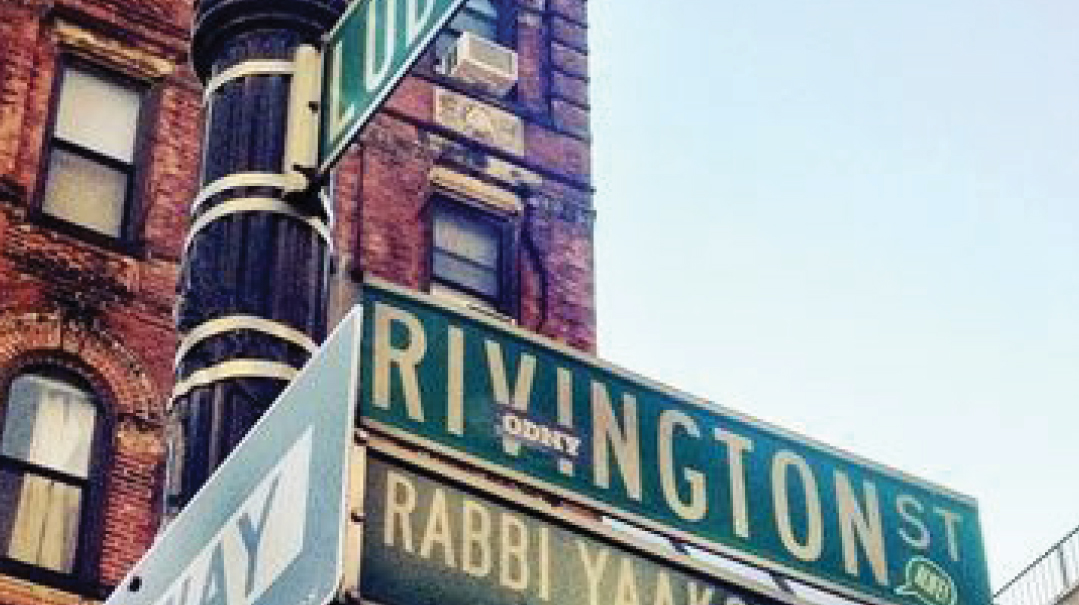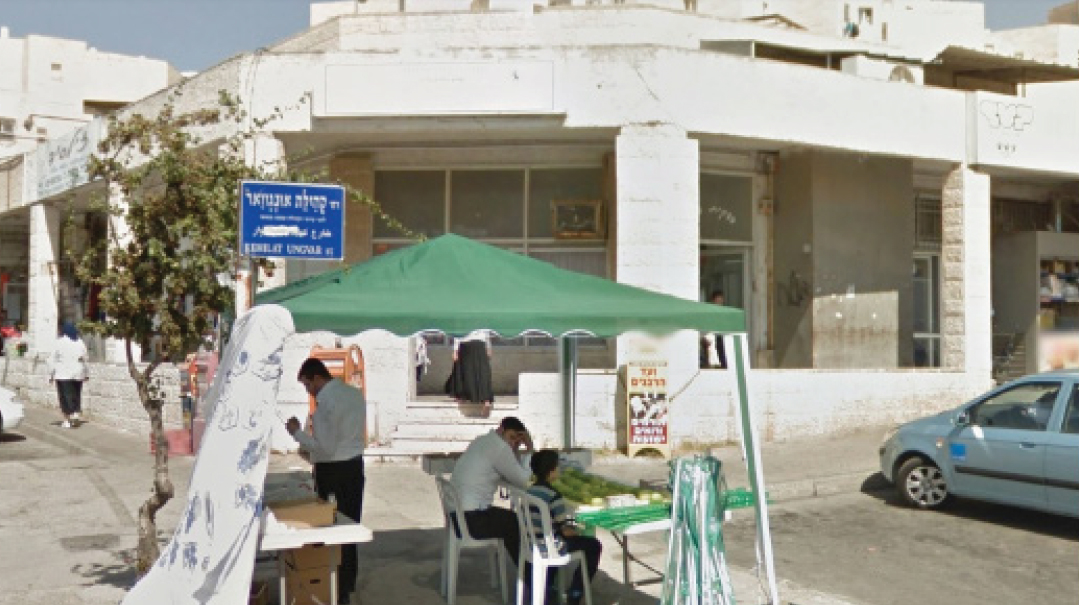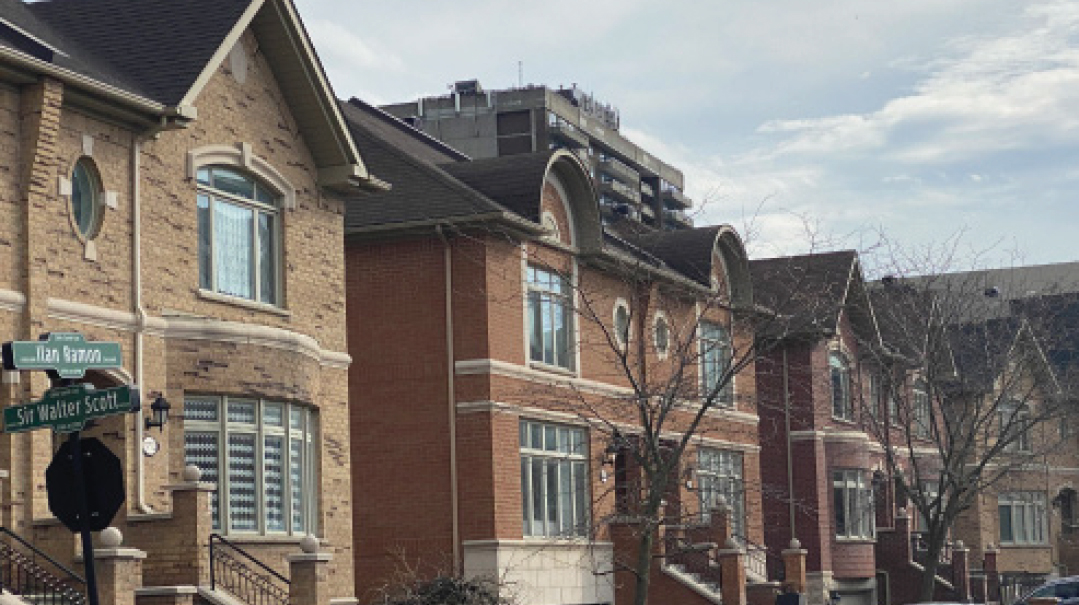It Was Always about Others
| April 5, 2020"A surgeon does G-d’s work and a rabbi does G-d’s work, so I’m also your colleague!”

RABBI YAAKOV SPIEGEL WAY, Lower East Side, Manhattan
Dedicated in memory of Rabbi Yaakov Spiegel a”h
WHO WAS RABBI YAAKOV SPIEGEL?
Rabbi Yaakov Speigel was the rav of the Romanisher Shul on the Lower East Side (also known as the First Roumanian-American Congregation and officially called Shaarei Shamayim) from 1981 to 2001. In addition to being one of the largest shuls to serve the burgeoning Lower East Side from the time it was founded in 1885 by a group of frum Romanian immigrants, the shul — with seating for 1,800 — was famous for the world-acclaimed chazzanim who performed there: Yossele Rosenblatt, Moshe Osher, Moshe Koussevitzky and others, giving rise to its nickname, the “Jewish Carnegie Hall.” By the 1940s, the congregation’s membership was in the thousands — but back then Rabbi Spiegel was just a child. By the time he was hired to regenerate the famed shul on Rivington Street in the 1980s, most Orthodox Jews had long relocated to Brooklyn, Queens, and further out, leaving him with a grand building and a tiny membership. Regardless, Rabbi Spiegel rejuvenated the place, reviving some of the former life and Yiddishkeit that once flourished on Rivington Street and beyond.
The shul was assured a morning and evening minyan during the week, made up primarily of the neighborhood’s businessmen, but the glorious main sanctuary became too expensive to maintain, so Shabbos davening was held in the downstairs social hall. The building was demolished in 2006, five years after Rabbi Spiegel passed away, after extensive water damage caused the roof to collapse.
The size of the kehillah, though, never seemed to faze Rabbi Spiegel. For him, it was about every individual to whom he could be of assistance.
“My father was a rav for the pashuter Yidden,” says his middle son, Rabbi Ari Spiegel, a teacher in Bnos Chaim seminary in Lakewood, whose own son Menachem authored his grandfather’s biography, The Rabbi from the Lower East Side. “He had the right background to become something much bigger. He had the unique combination of being both a scion of the Ostrov-Kalushin chassidic dynasty and a talmid of Rav Moshe Feinstein and Rav Aharon Kotler, so he had the blend of varemkeit and also the American open-mindedness. He was learned, he was charismatic, he was articulate. But he loved every Yid, no matter their background or affiliation, and was therefore thrilled at the opportunity to lead the Romanisher Shul, even if it was the few over the many.”
Rabbi Speigel was a selfless person who treated every person like his own child. For example, even before he moved in to an apartment he had only just leased, he gave the keys to a stranger on a bench who had nowhere to live, since he would anyway be spending the next two months of summer in the country. He spontaneously accompanied an elderly bachelor who rarely attended shul but happened to bump into the rabbi while on his way to a doctor’s appointment, and expressed his anxiety about going alone. And although Rabbi Spiegel had a weak heart, he refused the man’s offer to take a cab instead of the train, feigning energy he didn’t have as he took the subway steps. Intrigued by the rabbi’s genuine concern about the man’s medical situation, the doctor was shocked when he learned that he wasn’t even the man’s rabbi.
Although Rabbi Spiegel had a golden heart, it wasn’t a healthy heart. One time, he went to a highly recommended cardiac surgeon for an initial consult, but the doctor refused to take him on, saying he had a two-year waiting list. Before Rabbi Spiegel left, he asked him, “Do you know who the world’s first surgeon was?”
The surgeon drew a blank.
“G-d!” responded the rabbi, explaining how he created Chava from Adam. He wasn’t done yet. “If another doctor would come in, would you send him away? No, because he’s your colleague. Well, a surgeon does G-d’s work and a rabbi does G-d’s work, so I’m also your colleague!”
“Okay, come back next week,” the surgeon answered.
It’s easy to understand why people came to him to sort out their worries. And every year at his yahrtzeit seudah, new stories of his kindness emerge,
“My father always said, ‘You don’t have to be the greatest person in the world. Ordinary people can sometimes do extraordinary things,” says Rabbi Ari Spiegel.
Someone who never came to shul arrived one day and told Rabbi Spiegel that, as a child, he used to sing in the shul’s choir. He wanted to relive the memory so he asked if he could come to shul occasionally, sit in the back with his siddur open to Aleinu, and when the congregation would reach Aleinu, he would sing it for them. Looking at the visitor’s red suspenders and green shoes, Rabbi Spiegel understood that this man would end up a laughingstock. “On one condition,” he told the man warmly, “if I can sing along with you.”
And so, whenever the man came, he’d sit in the back with a newspaper, wait for Aleinu, and then sing the duet with the Rabbi. No one even knew his name — he was officially called “Aleinu.” One time, Ari Spiegel dropped in for Minchah with some friends, and “Aleinu” was sitting in the back, waiting for his stage. Ari cringed. He knew their duet would make a downright fool of Rabbi Spiegel in front of Ari’s friends — but it was too late. Sure enough, the boys were in stitches.
Rabbi Ari admits that afterward he went over to his father, asking him why he had to embarrass him in front of his friends.
“My father reminded me of the Baal Shem Tov story of the boy who sang alef-beis on Yom Kippur and then he told me, ‘How do you know that your whole Minchah is more worthy to the Ribbono Shel Olam than his Aleinu?’ ”
At Rabbi Spiegel’s shivah, “Aleinu” arrived, asking the three Spiegel sons, “With which song do you think your father was greeted when he came to Heaven?”
Too broken to think, they shrugged.
“Aleinu L’shabeiach,” he declared heartily.
“And you know,” says Rabbi Ari now, “we never knew just how much it meant it to him.”
Even at the edge of death, Rabbi Spiegel was busy doing chesed for others. One day in the summer of 2001, a woman came into his shul looking for the rabbi. Her daughter, an unaffiliated single mom, had given birth to a baby boy, and although she wasn’t sure if this little grandson would ever know anything about Judaism, she at least wanted a bris performed according to Jewish law. Rabbi Spiegel didn’t hesitate, and efficiently made all the arrangements. At the bris, Rabbi Spiegel named the child Eliyahu ben Avraham. After the seudah, at which he delivered a full derashah, the Spiegel sons had already left when their father suddenly felt unwell. Hatzolah was summoned, and as they prepared to take his bloods, he fell into their arms in cardiac arrest, passing on from This World to the Next with the merit of his final chesed and sealing his own covenant.
WHAT’S IN A NAME?
In 2003, the corner of Ludlow and Rivington Streets in Manhattan was co-named Rabbi Yaakov Spiegel Way. The idea came from a congregant named Alan Gerson, who was running for City Council in the shul’s district. At Rabbi Spiegel’s shloshim on September 7, 2001, Gerson announced that, if elected, he would rename the shul’s street for Rabbi Spiegel. One thing that especially touched Gerson was the level of Rabbi Spiegel’s ahavas Yisrael. When 14-year-old Bais Yaakov student Suri Feldman was lost in the forest for several days in 1994, Rabbi Spiegel called him saying, “Let’s go help with the search.”
Gerson was amused. “Rabbi, how do you think you’re gonna find her?”
“I don’t know,” he answered, “but let’s drive to Connecticut and start looking.”
The elections were due to take place on what became the calamitous September 11th. Obviously they didn’t. When they eventually did and Gerson won his seat, he kept his promise. The name change had to be voted on and passed by three committees within the City Council. “The chiddush,” says Rabbi Ari Speigel, “was that after 9/11, any street dedications in Manhattan were understandably in memory of fallen police or firemen who perished at Ground Zero, yet they agreed for Rivington Street to be named after a humble Jewish rabbi.”
During the street-naming ceremony, a reporter for a non-Jewish local paper asked one of those assembled to share something about the namesake. “Rabbi Spiegel was the local Messiah,” he answered. “If you had any problems, you’d go to him and he’d take care of it.”
When the reporter asked the family for a message, they said: “One day, when a kid is walking down this street, he might be feeling down or he might be struggling with religion, and he’ll see a sign with a rabbi’s name in middle of Manhattan. It will probably arouse his curiosity and he’ll do his research and he might be inspired to become a better Jew.”
A letter received after the inauguration of “Rabbi Yaakov Spiegel Way” accentuated the name’s significance. “May the street name help perpetuate our Rabbi’s way,” wrote the letter writer. “His way of boundless love for all people that transformed so many lives.”
Manhattan isn’t Boro Park, but nevertheless, the street bears the name “Yaakov” rather than “Jacob.”
“My father was makpid not to use our English names,” his son explains, “believing that one of the ways we will merit Mashiach is by not changing our names, like the Yidden in Mitzrayim who merited geulah by not changing their Jewish names. He wouldn’t register our births until we had our bris. So when the family was asked how we’d like the name to appear, it wasn’t even a question.”
Rabbi Spiegel says his father would have laughed at the idea of having a street named after him, yet he shares a related childhood memory. There was a Jewish assemblyman and judge named Samuel A. Spiegel, who had a square named for him posthumously. As a local clergyman, Rabbi Yaakov Spiegel, who was not related, attended the ceremony. Rabbi Spiegel’s youngest son — and eventual successor — is named Shmuel Aharon, so for the fun of it, Rabbi Spiegel brought home one of the placards on the street, laid it on the table when his sons came home from school, and announced that he had named a street for their youngest brother, showing the sign as evidence. “We really believed him!” says Rabbi Ari.
Rabbi Ari shares an inspiring vort. “There’s a Radak in Yeshayahu that explains the pasuk, “Shem olam etein lo — I will give them a name forever,” as that Hashem will put into the hearts of people to name things after themselves, so they should be remembered forever. Now, if someone donates a million dollars to a yeshivah he can easily own the name, and lehavdil every American president gets an exclusive presidential library to preserve his memory. But the kuntz is to merit having something in one’s name because of the way he lived his life. The street name is more than just a sign. My father always thought about others, and he therefore now merits others looking up and thinking about him. It bears his legacy.”
(Originally featured in Mishpacha, Issue 806)
Oops! We could not locate your form.










